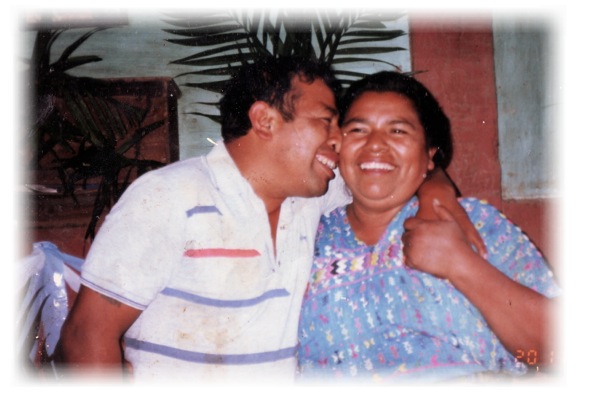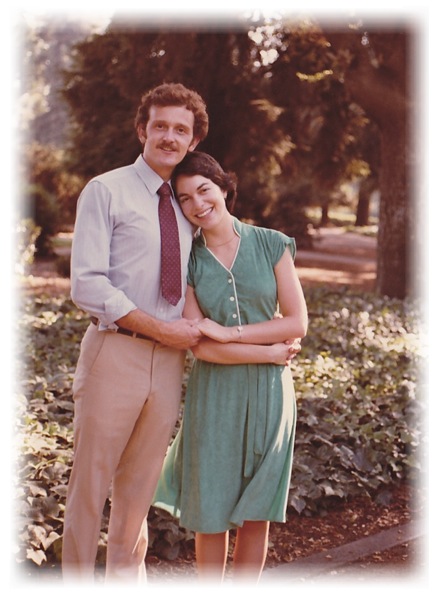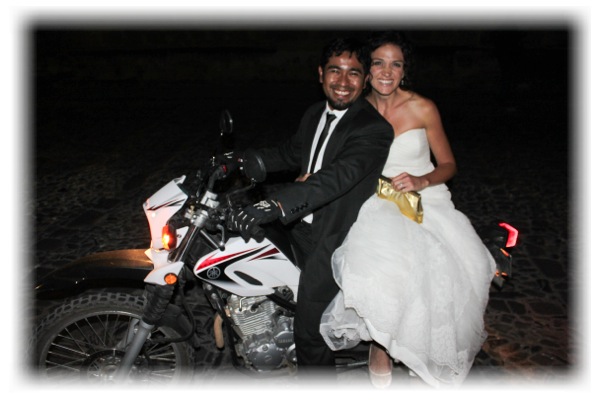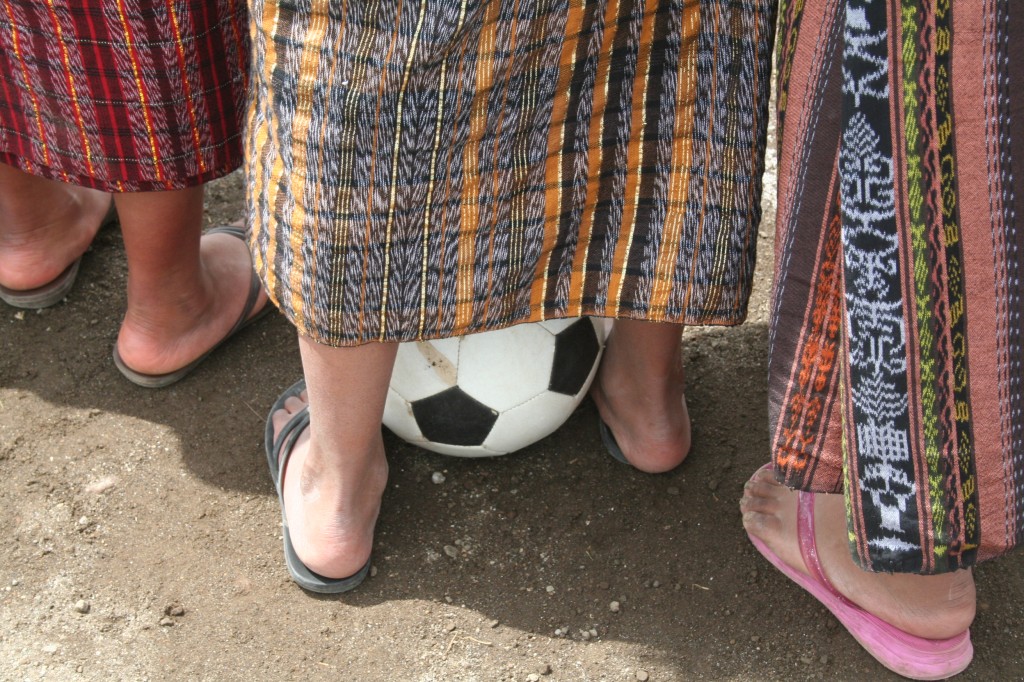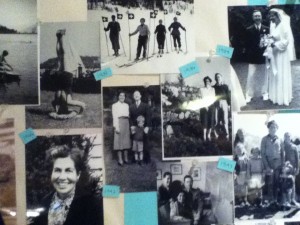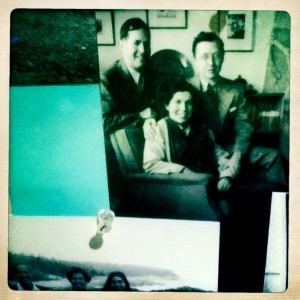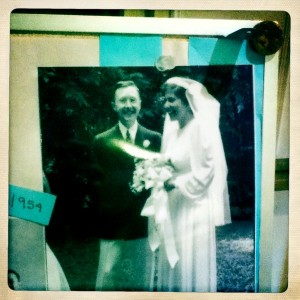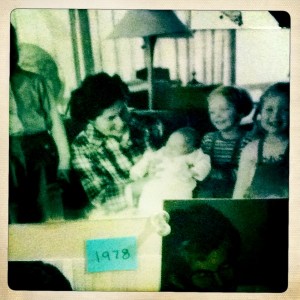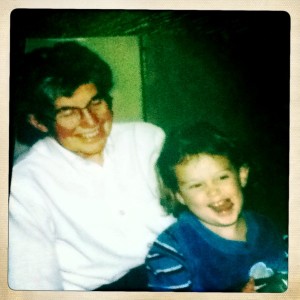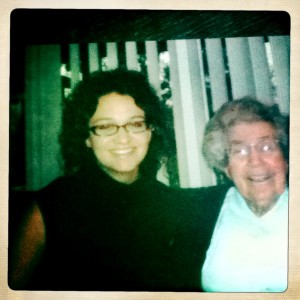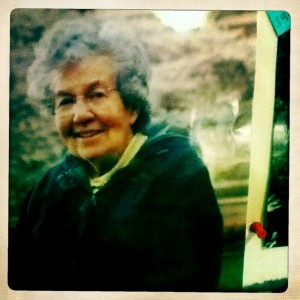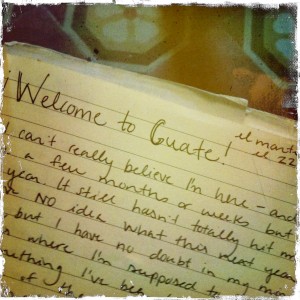Posts Tagged ‘faith’
Dear Mija,
Your daddy and I have been talking more about you recently because you are kicking and moving quite a lot these days. We wonder what you’re going to look like? Will you have a head full of dark hair? Will you have light skin like me or dark skin like your daddy? Your auntie Christine thinks you’ll be caramel colored. We talk about what it will be like with a newborn in our lives? Your daddy imagines all three of us going for breakfast and walking Pepe at El Cerro. I just imagine being really, really tired.
Mija, we are excited to be your parents, but we know we’re going to mess up. You will quickly learn that we’re not perfect. You’ll see me get frustrated and make loud exaggerated sighing noises from the kitchen when I find more dirty dishes in the sink. Daddy might get mad when I pepper him with a hundred questions as soon as he walks in the door. You’ll see us arguing and sometimes we disagree about what we should buy or where we should go. But we love each other a whole lot and we hope you’ll see that, too.
In fact I think one of the greatest gifts we can give you is a healthy marriage; not a perfect marriage, but a healthy one. One where you’ll hear us say, “I love you” and “I am sorry” frequently. One where you see us having fun and laughing together, but also one where you know how our voices change when we start arguing and disagreeing.
We are fortunate that this is something our parents gave and modeled for us. Yes, Mija both of your grandparents, still love each other a lot and showed your daddy and I what a lifelong partnership looks likes.
Look at these pictures of your abuelitos:
They got married 40 years ago on April 7, 1973. They raised four kids and adopted one more. Your daddy says they showed him what sacrifice and commitment looks even when it wasn’t easy. Your abuelo, Papa Choyo, tells me that your abuela was always the strong one of the relationship. She trusted and prayed when he doubted and wondered how God would provide. Your Mama Hilla just smiled when I asked her if she was the strong one. She said, “No, no fue asi. I just supported him and squeezed his leg under the table whenever he talked too much.”
Now, these are my mom and dad, your Nana and Papa.
They got married 31 years ago on November 28, 1981. They also had four kids and a few dogs and cats and fish in the mix. I remember Nana and Papa always being honest with us kids about God, money and big family decisions. They didn’t hide things from us or sugarcoat answers. And they didn’t hide how much they loved each other either. My dad, your Papa, would write scribbled, barely legible, post-it notes for Nana, and leave it on her car just to say I love you. And your Nana would plan and prepare meals and activities for us four kids, so that they could get away just the two of them for a few nights. Something I never realized was probably essential to their healthy marriage.
Your daddy and I are still learning how to do this; how to have the kind of marriage that endures for 30 or 40 years. But I hope you see how your daddy adores me. How he kisses me on the lips before he leaves for the day and how he reaches across the car to grab my hand and say “Yo te amo, Michelle.” How he gets gas in my car and fixes the shower when there’s no hot water and never complains when I ask him to pick up something from the tienda.
And I hope you see how much I love him, too.
Mija, there is a verse in 1 John that says something about you will know they are my disciples by how they love each other. And your daddy and I believe this with our whole heart. We want you to see God in us and in our marriage. We want you to see how much we love each other by how we treat one another and talk about the other person even when they’re not there.
So it may mean we leave you for a weekend with friends so we can have a few nights away. Or it may mean we take time as a family to rest and play and remember how to love each other well when we get tired, grouchy and short-tempered. And it will most definitely mean that we’ll need lots of grace as we figure out how to be parents to you and keep loving and serving one another well.
My prayer is that one day you’ll see a picture like this from our wedding day and say, “oh, the best gift my parents gave me was that they loved each other well.”
Mija, we can’t wait to meet you and be your parents.
Love,
Mama
(Mija is a Spanish word that literally means “my daughter.” It’s actually written “mi hija.” But when said quickly together it sounds like “mija” and it is said with endearment, kind of like sweetie or sweetheart in English. Female teachers often use it with little girl students. Mijo being the equivalent for little boys. It happens to be one of my favorite Spanish words.)
This is the second letter in a series of letters to my future daughter. The first can be read here.
Last Friday was International Women’s Day. I posted this on facebook and twitter:
Today my husband wished me a Happy International Women’s Day. Then he asked, “so when is International Men’s Day? #goodquestion #equality
And within minutes I was surprised by the responses and replies from men and women alike. Comments like “I’m pretty sure every other day is already international men’s day” or “Men have had thousands of years, you ladies deserve one day.”
• • •
On one hand I understand where these comments come from. Men, especially white men, historically have had unprecedented power and access to things like property rights, voting, and leadership positions in both church and government. There is no argument; worldwide men have had more power and control. For centuries women were 2nd class citizens if that, often no better than mere property. And I know first hand that in many developing countries around the world many women are no better off now than hundreds of years ago.
I know because I live in one of those developing countries. I live in Guatemala, a country where the machista attitude is still king and many women lack access to basic land rights, birth control options and education. It’s a country where family is valued above all else, but domestic violence is still quietly accepted as the norm. Change is happening, but slowly.
• • •
I teach at an all girls’ schools in a small village called Santa Maria de Jesus. Each morning 120 indigenous Guatemalan girls in their brightly woven skirts and colorful blouses walk up the dirt road to come to school. They sit at wooden desks, one size too big, with their little brown feet dangling in plastic flip-flops. Many of these girls wouldn’t get to the opportunity to study otherwise, because preference is often given to their brothers. We always start with full class of 30 girls in 1st grade, but usually only 1/3 of them make it to 6th grade. I believe whole-heartedly in these girls and that by giving them access to education they will have more opportunities in the future.
I, if anyone get, believe in and celebrate, International Women’s Day, but it’s left me with a question:
In our pro-women, girls-only push, are we failing the next generation of young men?
Don’t we need groups for young boys? Groups that teach them what it means to work together? Don’t we need role models who will show how to respect women and serve them? How do we empower men to be wise leaders and humble learners? I don’t think that happens by just elevating and celebrating women.
• • •
Guatemala has a large international community, NGOs from the US and Europe are on almost every city corner. Mission groups and churches have had a long history here as well. Thanks to a large international presence and many NGOs working on women’s rights, International Women’s Day is big deal here. In my local grocery store a handmade hung above the roses, “¡Feliz Dia de La Mujer!” My Facebook feed was full of empowering, encouraging posts honoring Guatemalan women. None of this bothers or upsets me in the slightest, but it does make me question. Why don’t I remember ever seeing a sign at the grocery story or a Facebook post about International Men’s Day? In fact I know very few organizations that are specifically working with boys or young men. I can name a few in the US, like Donald Miller’s Mentoring Project that are targeting boys who don’t have dad’s in their lives, but they seem to be few and far between.
It makes me wonder why and ask what the consequences will be? Don’t we need the next generation of men to grow up respecting, listening to and partnering with women? If we just focus on Women’s day and women’s rights where does that leave our next generation of men?
I believe, as I think Jesus modeled, that women and men are made equally in His image. Jesus constantly went against the culture to embrace the prostitute, the widow or the Samaritan women. In fact, the first person He revealed himself to was the woman at the well. He was radical in his treatment of women not as second-class citizens, but as beloved daughters. He gave worth to women, when society gave them next to nothing.
The church and our world clearly have a lot to learn in how we regard our daughters and young women. But do we also have something to learn about how we raise-up and teach our sons? Sometimes I wonder what would Jesus think of our 21st century Girl-Power society. Would he wonder why we have neglected young men?
• • •
My husband and I are expecting our first baby in a few months and we are thrilled. A little girl. She will be half Guatemalan, half gringo. And you can bet money on it that I want her to have access to education and be able to dream big dreams. I want her to be listened to and respected because of who she is and what she knows, not how she looks. I want her to see people from her gender in Congress and leading companies and preaching in churches. I want my daughter to be celebrated on International Women’s Day. And I hope that one day, many years from now, she will meet a man, who was also celebrated on International Men’s Day.
In case you were wondering, International Men’s Day is November 19th.
I would call myself a Christian. But there have been seasons of my life where those words have felt weighted by the need for a disclaimer.
I’ve wanted to stamp a SURGEON GENERAL’S WARNING on my backpack: I’m not like those Christians. I do not always vote republican, I deeply care about our environment and I don’t think your sexuality defines who you are or what rights you have.
I don’t get think that Jesus would be too happy with my need to qualify what it means to be a Christian. He seemed to be above all of that stuff.
A New Church
G and I have been attending a new church near Guatemala City. Being in someone’s home, with a community of people who are willing to be challenged and committed to keep asking good questions, makes the 45-minute drive on a rainy, Sunday afternoon worth it. The messages are video-casted in from a church in Atlanta, called North Point. And this week Andy Stanley’s message was not only challenging, but also a bit controversial. Maybe that’s why I respect him and the church community we’re part of.
He called it what it is.
Christians- we, myself, people in the church- are sometimes the biggest hypocrites.
Crowded together on wooden benches and white plastic chairs last night we sat and listened.
Andy talked about how Christians have used the bible to justify horrible things in our history- the enslavement of fellow human beings, the persecution and genocide of Jews, the abuse and subordination of women, the right to wealth and power, and I could go on and on. The thing is we can use theology to justify anything. People have done it for years and it’s quite scary, really because we still do it.
The Danger of The One Verse
Every side of every issue has a verse. Just ask them. It’s easy to pull a single verse out of the bible to prove your point.
I realized in some ways we all do this.
The truth is if you call yourself a follower of Christ or a Christian, you too have chosen parts of the bible to ignore. We do this pick-and-chose-dance based on context, and theology or what your church tradition and current culture tells us is acceptable. Last time I checked I didn’t know any women in modern evangelical churches who have their heads covered or any men walking around with their right eye gouged out from lusting after a woman. And as far as I know, most us have not sold all of our possessions and given them to the poor.
In someway or another most of us ask ourselves what was the intent of the commander, not just what was the commandment.
One of the things I love about Jesus, is that he knew we would do this. The Pharisees did it back then. They asked things like, “Well, how close can I get to breaking the law, without actually breaking it?” Or they’d question Jesus like a bossy older sibling, “How come your disciples don’t follow the rules and wash their hands before they eat?” (Matthew 15)
A New Commandment
But Jesus responds. And not with rules and laws, but with a new commandment. A new commandment that encompasses all the rest of them. A commandment that Jesus lives out to the fullest, and I believe has so much potential for good when we can learn to do the same.
He says:
Love one another. In the same way I have loved you, you love one another. This is how everyone will recognize that you are my disciples- when they see the LOVE you have for EACH OTHER
(John13:34, The message- italics added for emphasis)
That’s it.
Wouldn’t it be cool if one day someone said… hey, I know they’re Christians because of they love that they have for each other?
I don’t think this implies that we will all agree or come to some universal mutual understanding and vote for the same political party. I think being a follower of Christ leaves room for diversity and difference of opinion, but there is no question that if I chose to call myself a Christian than I have a responsibility to ask myself daily: What does love require of me?
What does love require of me?
What does love require of me each morning, each day, while I wash dishes or wait in line at the bank?
What does love require of me when I read facebook posts that I whole-heartily disagree with? Or when I see an old man with a beard and a bible clenched under his arm proselytizing in the park?
What does love require of me when I watch news broadcasts with Christians holding up hate posters against gays and lesbians? Or when Christians with very good intentions would rather hand out candies and t-shirts in the name of Jesus, instead of learning about development and empowerment?
What does love require of me when I want to control a situation in order to get my own way? Or when I want to be generous only when it benefits me? What does love require of me when I chose to ignore someone else’s needs because of my power or position?
What does love require of me?
I think I know the answer. But sometimes it’s a lot harder to live out, than it is to write about.
How do I chose to act differently? To speak differently? And to not do exactly what makes me so frustrated in the first place? Respond in anger, or disgust, or with excuses and judgement?
Whether you call yourself a Christian or not…
Will you join me in asking this question…What does love require of me? How do we live it out every day?
P.S. you can watch Andy Stanley message or the full series online at: http://www.northpoint.org/messages/christian
Three weeks ago I flew up to Seattle with my family to celebrate and honor my Grandma Emerson who passed away in October. The truth is those three weeks feel like 3 months ago. I wrote this after her service on the plane ride home, but I am just now getting around to posting it. I don’t think she would have minded that it’s a little late : )
{ her father, my great-grandfather, otto meyerhof }
My grandma Bettina Meyerhof Emerson was a strong woman- in every sense of the word. She was born in 1918 in Kiel, Germany, daughter of Otto and Hedwig Meyerhof. Her father had arranged for her to go nursing school in England, but she opted for medical school in the US. When your father is a Nobel Prize Winner for Medicine you think she might have respected his educational choices for her, but she didn’t. And I kinda like that. She was determined.
In the 1930s when it was longer safe for Jews to live in Germany because of Hitler’s growing anti-semitism, she escaped through France and came to the United States. She started a new life on her own, in an entirely new culture and language at the age of 18. She embraced challenges.
In 1943, she graduated from John Hopkins Medical School as ONE of nine women in a class of seventy-five. She defied social norms and expectations.
Later, she got married and moved to Seattle, where she raised 5 daughters to value education, learning and being resourceful. She was apparently part-homemaker, part-handyman and part-doctor. My grandma would knead homemade bread for the girls and sew handmade clothes for their dolls. When the washing machine or the fridge failed to function as needed, she would take it apart and try to fix it. And apparently when you grow up and your mom is a pediatrician, there is no need to visit the doctor’s office, because the doctor’s office (and all the medicine and injections you could need) come right home to the kitchen table. She was a woman of many talents.
As a Grandmother she paid attention to each of us six grand-kids. She diligently sent handwritten birthday cards to each of us. It didn’t matter what state or country we lived in, she sent them. And if you were lucky, sometimes Grandma would also send cutout newspaper articles that reminded her of a place you had traveled to or some interesting new development in your field of study. She had had an amazing ability to remember details.
My grandma was incredibly wise, (some may say frugal) with her resources. Many of the handwritten cards and letters I just mentioned above would sometimes arrive on previously used envelopes, with a label covering the former address. I remember the first time I stayed with my grandma for a weekend by myself and I opened up her kitchen cupboard to help make lunch. Inside were plastic take-out containers that most people would have thrown away, but not Grandma. She had washed, saved –and labeled them! The first thought that crossed my mind- so, this is where I get it from. She saved and re-used what she could and gave away what was very important.
She gave me the opportunity to go to college. She financed an education that my family or I would not have been able to afford. It’s another story that involves war reparations from Germany, stolen property from the Nazis, IBM, and a lawyer. But the point is that instead of choosing to live a lavish and fancy life with the large sum of money, she gave it to us grand-kids. She understood what it meant to be generous in ways I can only hope to replicate.
Later in her life, my Grandma reconnected with her Jewish roots and started attending a local synagogue in Seattle. At the age of 77 she started studying Hebrew and the Talmud. (I think to start learning anything at 77 years of age is just plain impressive.)
{some of her treasures that I got to bring home }
Now, I don’t claim to know a lot about Judaism, but I have come to respect many of the aspects of the Jewish faith- especially the tradition for mourning. In our fast-paced, quick-fix kind of society we often value efficiency over process and don’t know how to make space and time for the seasons of grief. But the Jewish faith challenges those ways of being. In the Jewish faith, mourning and bereavement are a discipline and practice done in the company of others.
• • •
At the end of my Grandma’s service we prayed the Kaddish- a Jewish prayer in Aramaic- led by the rabbi. I find it interesting that Kaddish is one of the Jewish prayers that must be said in a community of believers. You are not allowed to say it alone. In Lauren Winner’s book “Mudhouse Sabath” she explains:
“Tradition says that for a year after the loss of a parent, the mourner is to say this prayer twice a day. With other people. This was not a solitary act, it was a communal event.”
And I think its one of the reasons why choosing to gather for a memorial service is so important. As a community of friends and family we choose to gather, to honor and remember a loved one. We could individually remember my grandma, and mourn separately, but we choose to gather together. And I think this is significant.
On Sunday morning January 8th we said Kaddish for my Grandma.
One year ago today I arrived in Guatemala.
june 22, 2010.
I planned on staying for a year.
This is what I wrote in my journal on that first day:
“I can’t believe I’m here- not for a few weeks or months, but for a year! It still hasn’t totally hit me. I have NO idea what this next year holds, but I have no doubt in my mind that this is where I’m supposed to be. I’ve been learning that maybe one of the reasons I’m here is to learn what it really means to be a person who can “let go” and “trust God” and not just say that, but actually live like that. It’s learning that I can’t have everything figured out. I can’t make things happen or work to control the situation. I’m learning that letting go means trusting the process and that some things in fact do work themselves out. I’m learning what it means to ask for help and be taken care of. And maybe most importantly, God, I’m learning that if I say, I believe in You and trust Your timing, then I should also be ok letting go of my need to know and have it figured out. I’m excited for what’s to come. Surprises. Hope. Learning and Letting Go.”
And here I am a year later.
Blown away by the Surprises that have come. Challenged by what it means to live by Hope. And continuing to learn about Letting go.
• • •
• I have learned that living a good story sometimes mean leaving one thing to make room for something else. • I’ve learned that we need far less than most of us live with. • Walking is wonderful. • Believe it or not a dorm size fridge is more than sufficient. • I’ve learned to eat more locally and seasonally, not in some attempt to be organic and kind to local farms, but simply because that’s the only option. • I’ve learned to view water as a gift and hot water as a luxury. • Riding the bus is an excellent spot for people watching and praying. • My concept of time is greatly influenced by my culture and personality. • I am convinced that teacher meetings are long in any culture. • Learning and living within a second language is probabaly one of the hardest and most gratifying things I’ve ever done. • Letting Go means sometimes missing and longing for what was • I’ve learned that the world needs less people who talk about who God is, and more people who will show who He is. • Having unrealistic expectations often leads to disappointment • Trust by definition means you can’t control. • Never say Never. • Loving someone means you want their best • Living by faith means you may not be sure what is next. • And being able to admit that, is a very good place to be. •
• • •
Where were you a year ago today? And what have you learned?
Let’s be honest, words like resign, retire, or change have a much better connotation, than the word Q.U.I.T. “Quit“ sounds like a 4-letter word you mutter under your breath when you’re fed up with something. However, about a month ago I officially quit my job in Santa Barbara.
quit (kw t) - To give up; relinquish
t) - To give up; relinquish
It’s hard to quit or “give up” things that are good. I loved teaching high school English in Santa Barbara. I loved the students who I worked with and their challenging, yet creative ways of expressing themselves. I loved learning the best way to connect with families and patiently listen to parents’ concerns and frustrations. I loved working with a diverse and spirited group of teachers. But I also think sometimes it’s easy let the good and the comfortable, prohibit us from embracing change or exploring something new.
Not Sure What’s Next
For most of life I have lived with a pretty clear picture of “what’s next.” I have had goals, expectations, and plans since I was probably about the age of 10 and quitting anything was not part of those plans. For as long as I can remember I have known more or less what to expect every year: school starts in August, ends in June, two months of summer, and then, repeat. I went from Kindergarten to high school, then college and grad school in the same fashion. Then, I started teaching within the same system.
Part of my journey this past year has been letting go of my plans and my expectations. It’s been a process of listening, waiting and embracing the unknown. It’s almost like God has been asking me, “Do you trust me even when you don’t know what’s next?” And to be honest, this has been a hard process. How do we live with goals and dreams, but also the faith to admit we have no idea what’s next?
Room for Something New
When I “planned out” my life I never imagined leaving Santa Barbara to come to Guatemala for a year. And I never imagined that I would want to stay longer. I didn’t plan on leaving my job. And I certainly didn’t plan on falling in love with a country, a man and a life with more unknowns, than knowns right now.
But I’m learning that quitting something, leaves room to start something new. My dad used to always tell me when we say no to one thing, we say yes to something else.
What is something that you quit or let go of in your life?
 photo credit: elizabethbunsen.typepad.com
photo credit: elizabethbunsen.typepad.com
How often do we tell only half of the story? We share about recent events or holidays, but carefully omit and edit certain aspects. We can cut and paste the details of our lives to highlight our own or our children’s recent accomplishments, but we tip-toe around out insecurities and worries. We have learned the art of positive re-framing and mastered the simplistic, polite response “I’m good” when really everything does not feel so good. I too, do these things and to be honest I am not sure why. Sometimes it seems we value positivity over authenticity. We want our life to feel or appear a certain way so we tell ourselves and others just how good things are.
One Year Ago
Last year for New Years 2010 I wrote a post here about Expectation and Hope.
“Understanding the difference between hope and expectation is critical if we are to allow our future to be shaped by God. Hope longs for good but is able to be flexible about how that good might appear. Expectation grasps at solutions and becomes easily attached to outcomes. When we are hopeful, our imagination and creativity flourish. But when we are locked into expectations, it is easy to turn our pictures of the possible future into an idol.” (Helen Cepero, Journaling as a Spiritual Practice)
And if I had to describe my last year it would be just that; Letting go of expectations and hanging on to hope. Letting go of my plan, my job, my comforts and my idea that I know what is best. Maybe more accurately, it has been a process of letting go of control. Yet at the same time, learning to hang on to hope. The hope that life is full of surprises, the hope that God has a plan far more creative than I could imagine, and the hope that saying no to something, means saying yes to something else.
New Year’s 2011
My sister recently sent me this AMAZING link of a TED talk by Brene Brown, a research professor at the University of Houston. (Seriously watch it! You will not be disappointed. It may be some of the best uses of 20 minutes you’ve spent) With an academic, yet humble spirit Brown speaks about the Power of Vulnerability. She looks at what gives people worth, and how shame and belonging factor into our lives. But the part that stood out the most was when she described courage.
She explains that courage comes from the latin word cor, which means: to tell the story of who are with your whole heart.
TO. TELL. THE. STORY. OF. WHO. ARE. WITH. YOUR. WHOLE. HEART.
She describes that people who do this; people who tell the story of who they are with their whole heart, are authentic and compassionate and vulnerable. These are people who “let go of who they thought they should be, in order to be who they are.” It made me re-think how often do we tell our stories, share our opinions or post on facebook so that we can live up to who we think we should be? Or worse yet who we want others to think we are?
In the year ahead I want to be a person who has courage. A person is not afraid of being authentic. I want to be someone who tells the whole story. Sometimes it can be tempting living and serving overseas to tell “part of the story”- the good, the exciting and the fun. I can easily glorify what life is like. But I also want to tell the “other part of the story”- the unknown, the confusion and the worry. Because I am coming to believe that both are extremely important. It’s the whole story, the whole person, the whole heart that connects us with others.
What keeps you from telling the story of you are with your whole heart?
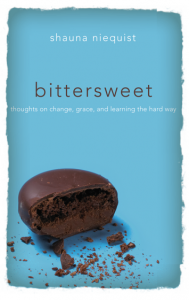 Thoughts on Change, Grace and Learning the Hard Way
Thoughts on Change, Grace and Learning the Hard Way
Many of you know that this past year has been one filled with a lot of change. And for someone who tries to shy away from change at all cost, it has certainly been an ongoing process of learning how to accept and even embrace it. I am firm believer that we cannot qualify and quantify change. Change is change in whatever form it takes. Moving to a new city. Losing a job or starting another. Having a child or going back to school. Getting married. Ending a relationship or starting to date. For some what may feel invigorating and exciting for others feels overwhelming and downright frightening. It doesn’t help to compare and size up whose change is bigger or harder. I have learned sometimes it’s just better to acknowledge it for what it is: Change.
I recently finished Shauna Niequist’s new book Bittersweet: Thoughts on Change, Grace and Learning the Hard Way. With an honesty and vulnerability that is rare to find, she shares how struggle, pain and dark places can lead to something beautiful. Shauna doesn’t give cliche answers or simplistic solutions. Instead she writes about stories and people and the process that we must go through to begin to see how “loss and emptiness and confusion often give way to new fullness and wisdom.”
The Gift
When I was in college (at the same place where Shauna studied) one of my favorite English professors always asked us at the start of class, “Ok, what’s the gift from this text?” The gift of Bittersweet is that Shauna names what for many of us is so hard to name. She gives faces and stories to describe the feelings, the situations, and the things that seem hardest to admit.
This is one of my favorite passages as she reflects honestly on her longing to become pregnant and the process of waiting:
“I know that most of us are longing for something…I know people who are longing to marry, who are longing to be healed from disease, longing for their children to come home, longing for the financial pressure to release. I get that longing is part of how we live…. “That’s why its hard, I think, to rejoice with those who rejoice and mourn with those who mourn. I love that line from the Bible, but it’s so incredibly difficult sometimes, because when you’ve got reason to rejoice, you forget what it’s like to mourn, even if you swear you never will….[so] I’ll celebrate with my friends. I’ll hold their babies, buy baby gifts, ask them what’s it’s like for them and really listen to the answer. I’ll do it because it’s the right thing to do, and because I can’t ask them to mourn with me unless I’m willing to celebrate with them, as deeply painful as it is on some days. And my friends have done it for me, certainly; they stood in my wedding when they wanted to be brides, brought shower gifts when they wanted to be mothers. No one is exempt from the longing, and now, it seems, it’s my turn.”Throughout Bittersweet Shauna creatively weaves in spices and flavors and colors that season every essay and remind us that life is meant to be tasted and savored, even when it is hard. She does not promise us some sugar coated recipe for life, but rather a beautiful description how we need both: the sweet and the bitter in order to grow.
FREE copy of Bittersweet
I consider finding free things to be one of my hobbies. And now you get to benefit because you have the chance to get a FREE copy of Bittersweet. Here’s how it works:
1) Leave a comment on this post about a change in your life that was either bitter or sweet, or maybe both.
2) Then I will chose one winner and email you to get your mailing address.
3) Shauna’s publisher will send you a FREE signed copy of the book. Not a bad deal, huh? : ) You have until midnight on Wednesday, November 10th.
Lately, I have been very grateful for skype and text messages and other handy forms of electronic communication. People back home often ask me, How are you doing? How’s life down there? Do you like it?
I sometimes find myself fumbling over my words in a half-ass attempt to explain what my life is like here. Or even worse I give a cliche answer like “yeah, everything is going great.” But I think that is because sometimes I honestly don’t know how to describe the changes that have taken place. Not big drastic changes, but small, still significant shifts in my heart and soul.
If I had to describe it in a word: Contentment.
For maybe the first time in years, I can honestly say I feel this peace and contentment with who I am and where I am. I’ve realized that I often spend a fair amount of mental energy comparing myself to those around me. It’s almost a subconscious thing.
I compare my myself to my friends who are newly wed or newly dating. I compare houses or apartments and think about whose place is better decorated. I compare jobs, and cars and who is a better cook or faster runner. I compare myself to girlfriends who have the precious baby bump and wonder if I’ll ever have children. Probably only my female readers will understand this, but sometimes I even compare myself to other women for the infamous who-has-a-small-size-jeans check. Yes, I realize this sounds superficial and pathetic (it is), but gentleman I know for a fact that other women do this too!
I think these kinds of comparisons can happen anywhere, but for those of you who have lived in Santa Barbara you know that SB has an odd standard for what’s “normal.” These past 2 months have given me a much needed break and a perspective change. My standard of what is “normal” or necessary has changed.
I’ve begun to realize how often comparison leads to envy, which leads to worry and then a general lack of faith. Basically, an equation for a disaster. This is not how I want to live.
I believe there is something beautiful about learning to be thankful and let go of the expectations that my life is supposed to look a certain way. When we stop comparing ourselves to others we leave room for God to say, Look, this is what I have for you. A life of peace and contentment. A life that is open to surprises and something new.
There is a verse in the book of Colossians that I have been re-reading this past month. It says that God “is before all things, and in him all things hold together.” This is a new mentality for me, a new reminder that He holds all things together, so I don’t have to. A new perspective that allows me to trust He has gone before me. I know this does not equate to instant happiness and tangible rewards, but it does allow me to live with this new found contentment.
I think the challenge will be figuring out how to integrate this new mentality and way of living back in the states. But, we’ll deal with that when it comes. For now, I could not be more content to be here.
photo: reflection of el arc, a new perspective
I have been curled up in a coffee shop for most of the morning. I have a list of things to do: thank you letters to write, papers to grade and emails to respond to. Each task warrants my attention, but the truth is I am distracted. My heart and mind feel mixed up and overwhelmed, like a dryer that keeps spinning around the same wet mess of clothes all jumbled up and intertwined. I have all of these ideas cycling through my head, but I can’t make sense of them yet.
Conferences have a way of doing this to me. They suck you in with thousands of great ideas and inspirational thoughts and then spit you out to sort through them all. blah.
Sorting Through
So now I am doing the sorting through, processing and thinking about. I spent two full days last week at Catalyst, a conference geared for church leaders, pastors and directors of non-profits— none of which entirely define me, but all which deeply affect me.
Perhaps the best part of the conference was that these people- these pastors, authors, media analysts, creative visionaries, artists and non-profit directors believe that there is hope for this next generation. They believe that the church has to change. And that excites me.
Hope for Change
I have been in the church for most of my life, but I have probably struggled more in the past year to fit in at a church. I sometimes wonder where is there room for a left-leaning, creative, passionate follower of Christ who wants to engage in dialogue not doctrine, and whole-heartily believes that we should spend more time loving people for who they are than lecturing them about right from wrong.
I confess: I know that I am young and I have a lot to learn, but I am seeking to understand and live like this man named Jesus. I am trying to make sense of this radical, subversive man who honored and acknowledged women in a culture where they lived as second-class citizens, who sough out and actually chose to spend time with the tax collectors, the sick and the marginalized. Jesus’ harshest judgments and warnings were for us; for me, the Pharisees, the church goers. What does that mean for me? For you? For the church?
Called to Love
I believe somewhere we have inadvertently taken authority to be the judge of people and society. I can’t remember where I read or heard this (so forgive me for not giving credit where credit is due) but it went something like this: God’s job is to judge, the Holy Spirit convicts and we are called to love. That’s it.
Andy Stanley, one of the speakers at the conference, challenged a room full of 3,000 leaders of this next generation, What if we lived this out? What if we embraced and preached and acted upon Jesus’ command to “Love one another.” In John 13 he says, “By this all men will know that you are my disciples.” I have heard this passage numerous times, but I have never let it resonate and ring so clearly. Imagine if people knew Christians because of our love? I mean really imagine it-Imagine what our world would be like if people thought…hmm, I want to be a part of that church because they are so loving. Or imagine if people thought…wow, that person doesn’t agree with me, but they really love and care about me. This is radical. And it was radical back then in Jesus’ day and it still is 2,000 years later.
Reggie Joiner, the founder and CEO is of reThink Group, a organization that helps churches connect with this next generation, reminded us that the church is called to be like the father in the prodigal son story. Our job is welcome people, embrace them and shower them with love and forgiveness. This is where people meet Christ and this is how people change. People don’t change by shame and guilt, they change through relationships and love. He left us with this question: Where will people go when they have wandered away from the church? He added, “It’s not if, but when. Because the truth is we all know people who will or already have wandered away from church. It’s part of this generation’s process. But he challenged us “You want to be sure that they can wander back to your church to be welcomed and embraced.”
Just like the father in Luke 15 who when he saw his son far off he was “filled with compassion [so] he ran to him [and] threw his arms around him.
And then…
the story says that the Father threw his son a party. Yep, a party.
My hope is that church can throw a lot more parties in the years to come.
